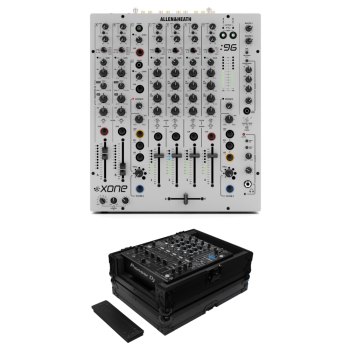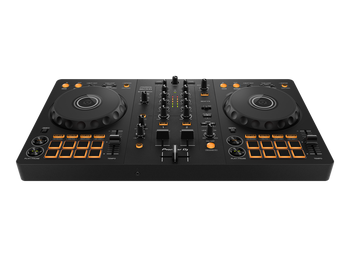- Exceptional sound quality
- Advanced features
- Robust build
- Smooth controls
- Portable
- Affordable
- User-friendly
- Built-in drum kits
- High price
- Heavy
- Basic features
- Limited connectivity
Allen & Heath Xone:96 vs Roland DJ-202
When it comes to professional-grade dj mixers, two popular options that often come up in conversation are the Allen & Heath Xone:96 and the Roland DJ-202. While both products cater to the needs of DJs, they differ significantly in terms of design, features, and functionality.
The Allen & Heath Xone:96 is a high-end DJ mixer designed for professional use. It boasts a robust build quality with a rugged steel chassis, making it suitable for heavy touring and frequent gigging. The Xone:96 features a 6-channel layout with 4 phono inputs, 2 line inputs, and 2 USB ports for seamless integration with digital music libraries. One of its standout features is the proprietary Xone filter system, which allows for precise control over frequency ranges and enables creative sound manipulation. Additionally, the mixer includes an onboard effects processor with 16 effects, including reverb, delay, and distortion.
On the other hand, the Roland DJ-202 is a more compact and portable DJ controller that also functions as a mixer. It's designed for both professional and hobbyist DJs who need a reliable and easy-to-use setup. The DJ-202 features a 2-channel layout with 2 phono inputs, 1 line input, and 1 USB port. While it may not have the same level of build quality as the Xone:96, it's still constructed with durability in mind and features a sleek, modern design. One of its key advantages is the integration with Roland's popular Serato DJ software, allowing for seamless control over digital music libraries and effects.
In terms of sound quality, both products deliver exceptional performance, but the Allen & Heath Xone:96 has a slight edge due to its high-quality analog circuitry and proprietary filter system. The Xone:96 is capable of producing a wide range of tonal colors and textures, making it ideal for DJs who demand precision control over their sound.
When comparing the two products as dj mixers, it's clear that they cater to different needs and preferences. The Allen & Heath Xone:96 is geared towards professional DJs who require a high-end, feature-rich mixer for live performances and studio use. In contrast, the Roland DJ-202 is more suited for mobile DJs, hobbyists, or those who need a compact and portable setup for smaller gigs or practice sessions.
Another significant difference between the two products lies in their price points. The Allen & Heath Xone:96 is positioned as a premium product with a higher price tag, reflecting its exceptional build quality, advanced features, and professional-grade sound quality. The Roland DJ-202, on the other hand, is more affordably priced, making it an attractive option for those on a budget or just starting out in the world of DJing.
In conclusion, both the Allen & Heath Xone:96 and the Roland DJ-202 are excellent choices as dj mixers, but they cater to different segments of the market. The Xone:96 is ideal for professional DJs who demand the highest level of quality, precision, and control, while the DJ-202 is better suited for those who need a compact, portable, and easy-to-use setup. Ultimately, the choice between these two products will depend on individual preferences, budget constraints, and specific needs as a DJ.






























